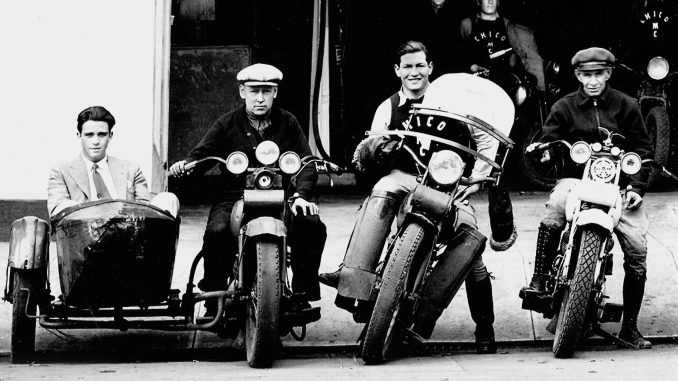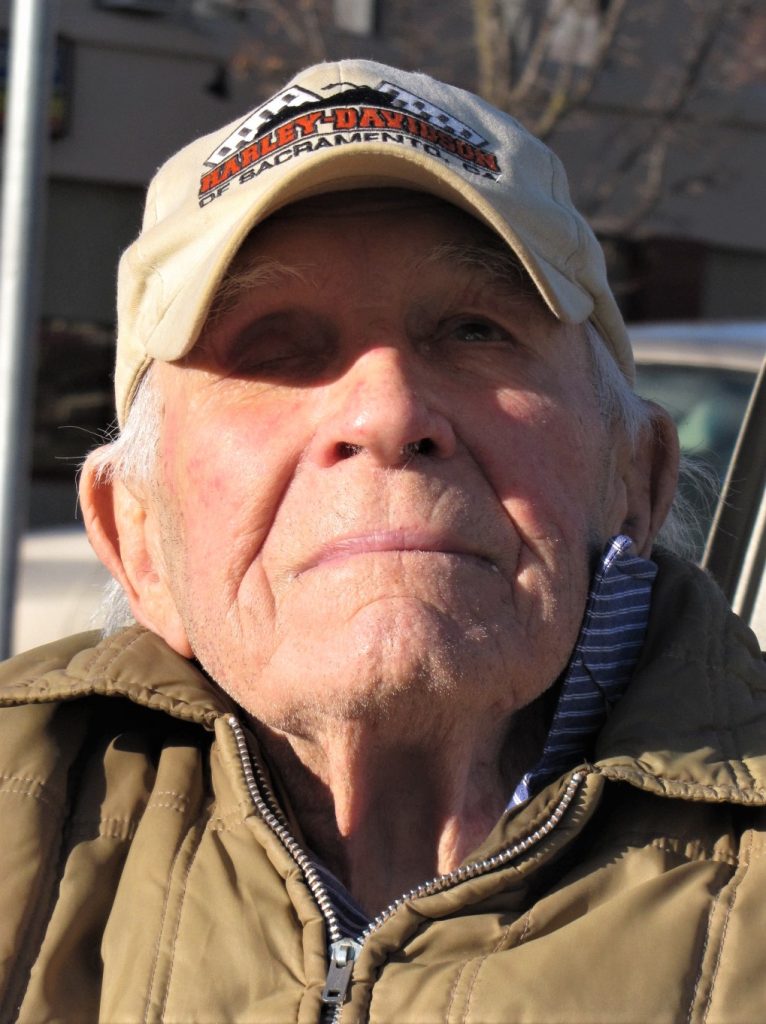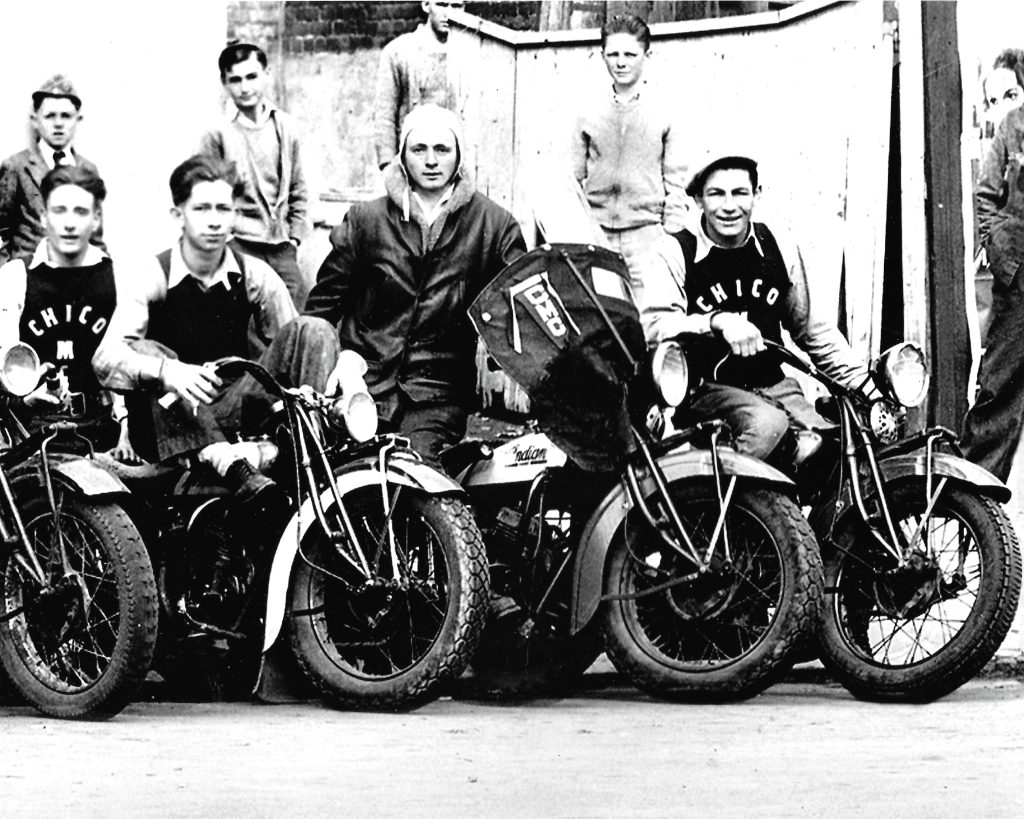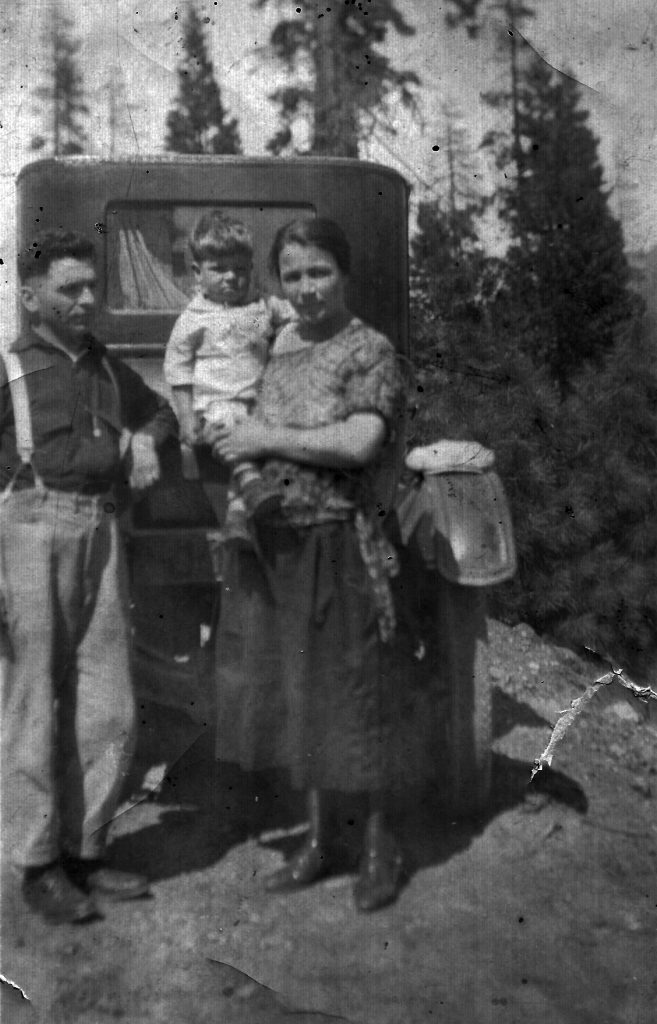
A remembrance of what I learned about life by just listening
By Ken Magri
One winter day in 2011, I walked up to my 98-year-old Uncle Ernie’s apartment door in Carmichael and knocked. “Hey, Ernie, it’s Ken. Are you in there?” I yelled. “Yes,” he said. “The door is unlocked.” I walked in told him we had an appointment in Chico to make a historic recording for the Library of Congress. Ernie was certainly impressed and it seemed like an exaggeration, but was true.
The non-profit organization StoryCorps.org built a recording studio inside a vintage Airstream travel trailer, and had it parked in downtown Chico between Broadway and Main Streets. The organization drives across the country, stays for a while in certain towns and records 45-minute discussions between two people. The recordings are then sent to a digital archive at the Library of Congress. Ernie was 98 years old, and I knew his memories went all the way back to the 1910s. This would be a great opportunity for him to be a part of the recorded history of his home town.
I had not been back to Chico since graduating from CSUC with an art history degree in 1977, so this would be a trip down memory lane for me as well. Grabbing a vacant wheelchair, I signed Ernie out for the day and we pulled onto Highway 99 in my truck at about 10:30 am. It was freezing cold that morning. But inside the warmth of the cab, Ernie told stories about his brothers Jody and Bobby, and mostly about escapades with his brother Armando, my deceased father.
“Your pa had more girlfriends than you ever heard about,” said Ernie as we approached Yuba City. “I know, Ernie,” I answered. “He took pictures of them. They’re in his scrapbook.” “More than that,” said Ernie.
Mom always had something snippy to say about those photos of Armando with old girlfriends. “Her parents thought she was too good for Armando,” she would say. “That one, she was too young. She didn’t know what she was doing.” Never mind that Mom was just 19 when she married Dad.
Ernie also talked about Jeanne Boutin, the 19-year-old woman who taught him and Armando how to ride motorcycles when they were 15 and 14 respectively. Ernie and Armando instantly became motorcycle enthusiasts, and when they were older co-founded the Chico Motorcycle Club.
Ernie spoke of being with Jeanne at a bar on the edge of town, listening to their friend Mario Stillo play the accordion. “Let’s go for a ride, Ernie,” he reported her whispering into his ear.
As he talked, I could visualize Ernie and Jeanne riding a motorcycle down Park Avenue in the dark, through a drizzle of valley rain, with her arms around him. It would have been the early 1930s. Even though he never had any money, Ernie said there was always something to do. You could go swimming in Bidwell Park, or ride through the orchards and create your own picnic, eating plumbs and peaches.

Then Ernie got quiet for a couple of minutes, as if he was remembering some things just for himself, until exclaiming, “I should have never married Rose.” “Why is that?” I asked. “Well, Rose didn’t like doing much of anything around the house, except having sex, and she didn’t care who with.”
I let that one sit there for a while, as Ernie eventually went back to his memories of Jeanne. He told me where to find Jeanne’s photograph in his old Chico High School yearbook. It seemed that Ernie loved Jeanne, and she him. But, somehow, he let her slip through his hands. As a child, I knew Ernie’s marriage to my Aunt Rose was rocky, but didn’t know why. Now, Ernie saw me as the family historian, filling in the details for posterity.
“I gotta pee,” he blurted. “Okay, I’ll look for a Starbuck’s or someplace where we can pull in,” I said. “I gotta pee now!” “Okay Ernie, I’m pulling into this parking lot right now, next to this orchard,” I told him, swerving into the back of a pizza parlor in Live Oak. Running around to the other side I said, “You can stand up right here at the car door and pee down into the dirt.” “That’ll be fine,” he said. Helping Ernie pee onto the rain-soaked ground made me feel like one of the Magri brothers, creating more Central Valley mischief.
Once we got to Chico, the StoryCorps recording went well. It took three of us to get Ernie and his wheelchair into the trailer. I turned on my tape recorder while Ernie’s memories went back to the 1910s and grammar school. He talked about getting scolded by a teacher for Armando’s mischief, because she couldn’t tell the two apart.
Ernie spoke about hanging out at Vern Pullins’ Cyclery, the motorcycle club, the depression years and how everyone in town seemed to work at the Diamond Match factory, his brothers and what they did from childhood through WWII, all covering ten decades. For a guy who loved to talk and be listened to, this was 45 minutes of heaven.

At the end of the recording session, the sound engineers took our photograph together, and Ernie and I headed back to the truck. While I mentioned which streets I was driving down, he started describing everything from memory. He mentioned Uncle Jody’s place with the walnut trees on West 8th Street. He remembered where his old grammar school once sat on Main Street, then told me to head over to 21st Street.
After he gave me a street number, I pulled over and Ernie asked if there was a big elm tree there. “Yes there is.” I answered. “That’s where your pa, Jody, Bobby and me grew up.” We spent a few minutes parked out front, just being there. Ernie described the years when his mother had left, and Armando and Jody were sent to live in a convent in Grass Valley. Ernie was alone with his father, who he hated.
The front house was rented out for income, so Ernie and his father lived in a backyard shed with no plumbing. Ernie said his brothers were the lucky ones to have been sent off. Then he unloaded on his dad, the grandfather I never knew. “He was mean and cold. He would buy me a pair of overalls, and it had to last the whole school year. He had a list of chores I had to finish, or he would give me a licking.”
When Ernie was 14, the old man died. Giovanni, the family patriarch who immigrated to America and began the Magri family legacy in America, was gone. Ernie’s mom returned to Chico, picked him up at school and said, “You need to change into something nicer.” “But I ain’t got any clothes except these, Ma.” Ernie said she took him to a department store and bought him a fresh set of slacks, a shirt, socks, underwear and a jacket. Soon after, Armando and Jody returned from the convent (Armando spent 5 years there, and Jody three). Now the family was reunited, with a new little brother, Bobby Gheller.

Ernie didn’t want to see his dad’s gravesite at the Chico Cemetery. Instead he asked me to drive down Park Avenue until it turned into Midway, and continue to Hagen Lane. At the corner was Glen Oaks Memorial Park. Ernie wanted to visit his mother’s grave. When she came to America through Ellis Island in 1911, her name was Zaira Pasquinelli. In a year she would become Zaira Magri and be pregnant with Ernie.
We turned in to the cemetery, and Ernie said it used to be an airfield where barnstormers would fly in and perform. He told me to stop before the first right turn, and pointed to his right. “You walk straight out there, seven big steps, and you’ll find Ma’s grave,” he said. “Okay, then. I’m going to leave you here for a few minutes and find it,” I answered.
As Ernie sat alone in the truck, he began to talk to his mother Zaira. I know this because I forgot to shut off my tape recorder from the Story Corps interview, and I discovered it several hours later. “Ma? Ma?” “I’m going to be joining you soon, Ma,” Ernie said. “Yeah, you were a good mom. A guy could have done a lot worse than to have you for a mother.” Then he started singing. “When Irish eyes are smiling, sure, ’tis like the morn in Spring. In the lilt of Irish laughter, you can hear the angels sing…”
Then I returned to the truck. “I gotta hand it to you, Ernie. It was pretty close to where you said! And Uncle Bobby’s tombstone is just feet away. Wow, I didn’t know he was a major!” I grabbed my camera and went back out. Ernie sat again, as an occasional whoosh of a passing car broke the silence inside the cab. This is where Ernie said he planned to be buried, along with his mother and brother.
We decided to take the long way home, continuing southbound down Midway. It was dark now, but you can’t really get lost in the Central Valley. As I described each junction, first at Roble, then at Durham, Ernie would unleash more memories. “The Chico Motorcycle Club used to hang out at the bar there.” “There’s a ranch on the left. It was owned by a rich family, and they had two beautiful daughters that went to Chico High.”
Ernie talked about everything he could remember, like the time Armando and Mario Stillo were showing off on their motorcycles behind a school bus full of high school girls. He said that Mario leaned back with his foot on the throttle, and it slipped. The bike took off without Mario and “hit the side of old-lady-Crumb’s house.” She was the local grammar school principal. Those girls on the bus must have laughed all the way back to Sterling City.
By the time we hit Gridley, I realized that we hadn’t eaten all day, so I pulled into the Burger King. “I’m going to get something to eat, Ernie. Do you want anything?” “A chocolate milkshake,” he said. As I approached the drive-up window, Ernie began to describe how he doesn’t take actual poops anymore, but uses his finger to dig out little poop ball clusters. “Jeez, Ernie, I’m trying to order food here!” Ernie was 98 years old, and he was going to say anything he wanted.
But once he got that milkshake, things stayed quiet until I heard a long, bottom-of-the-cup slurp. “Have you been sucking on that since Gridley?” I asked. “I haven’t had a shake in a year and a half,” he said.
2024 Post Script from StoryCorps: Now a free mobile app puts the StoryCorps experience into anyone’s hands so that they can record and archive a meaningful conversation anywhere. The app guides users through the interview experience with easy-to-use tools to help prepare interview questions, record high-quality conversations on a mobile device, and upload the audio to the Library of Congress and the StoryCorps Archive platform. To participate, go to StoryCorps.org or email them at contactus@storycorps.org.

thanks for sharing and documenting his storys. I sometimes wish I had with my grandfather.
GREAT ARTICLE. I knew Uncle Ernie and he was a great guy.